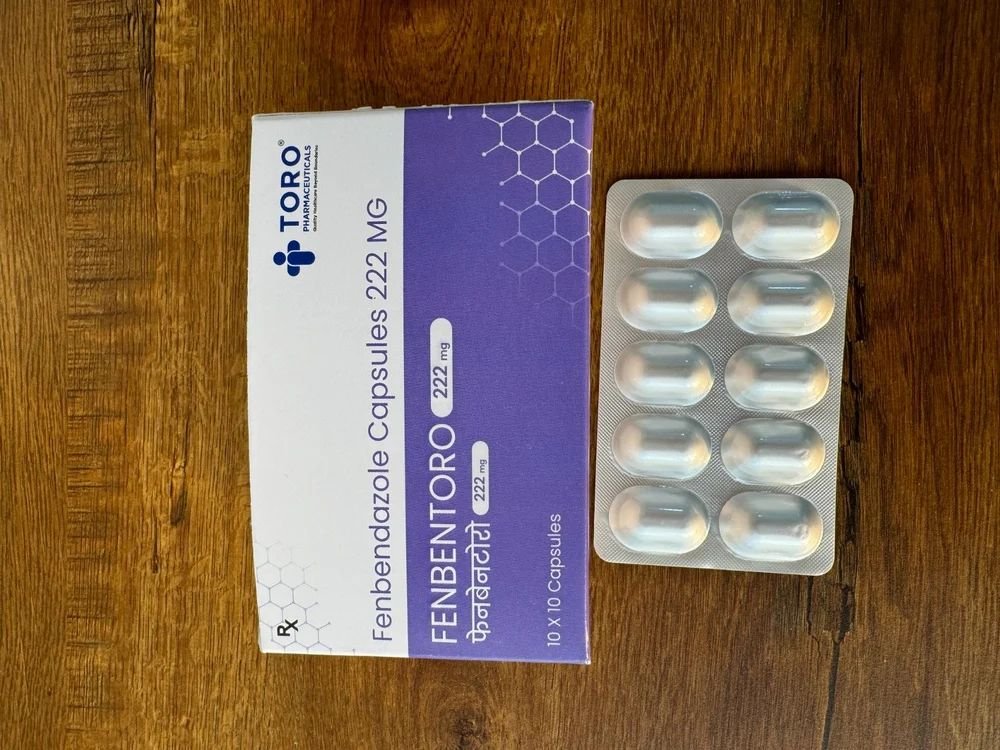Recognizing the Conveniences and Uses of Fenbendazole in Vet Medicine
Fenbendazole has actually developed itself as a key anthelmintic in vet medication. Its capability to target various parasitical infections makes it a beneficial tool for veterinarians. The medicine's device interferes with necessary mobile procedures in parasites, resulting in effective therapy end results. Its safety and security profile varies in between types, necessitating careful factor to consider in its use (fenbendazole 444). Recognizing these dynamics can clarify fenbendazole's wider ramifications in veterinary care and continuous study into its prospective past traditional applications
Device of Activity of Fenbendazole

Typical Parasitic Infections Dealt With With Fenbendazole
A selection of parasitical infections are successfully treated with fenbendazole, making it a functional option in vet medicine. This anthelmintic representative is specifically efficient versus nematodes, including roundworms and hookworms, which frequently influence pets and pet cats. It is likewise utilized for the therapy of cestodes, such as tapeworms, supplying a wide spectrum of action versus both kinds of digestive parasites. Additionally, fenbendazole is useful in managing infections brought on by protozoa, particularly Giardia, which can bring about gastrointestinal distress in pets. Its efficacy encompasses dealing with certain lungworms in canines and felines, attending to respiratory system health and wellness problems linked to these parasites. On the whole, fenbendazole's capacity to target several parasitical species makes it a useful tool in veterinary technique, making sure the wellness and wellness of family pets influenced by these typical infections.
Security and Efficiency in Different Pet Types
The safety and efficiency of fenbendazole vary amongst different pet varieties, emphasizing the significance of species-specific factors to consider in veterinary medication. In canines, fenbendazole is usually well-tolerated and effective against a range of gastrointestinal bloodsuckers, consisting of roundworms and hookworms. For felines, nevertheless, its usage is less common and might call for mindful application because of possible negative reactions.
In livestock, such as livestock and lamb, fenbendazole shows efficiency versus numerous endoparasites, adding to enhanced health and productivity. The pharmacokinetics and possible side results can differ significantly between species, requiring mindful assessment by veterinarians.
Horses also react positively to fenbendazole, especially for treating strongyles and ascarids, though dose and management courses must be tailored to their special physiology. Comprehending these distinctions is crucial for enhancing treatment end results and making certain animal well-being throughout diverse varieties.
Administration and Dosage Standards
Proper management and dosage standards are important for optimizing the restorative effects of fenbendazole while lessening prospective negative effects. Learn More The dose typically varies depending upon the varieties being dealt with, the particular problem, and the formulation of fenbendazole made use of. fenbendazole. For canines and felines, an usual dosage is 50 mg/kg body weight, carried out daily for 3 successive days, yet vets may change this based upon private health evaluations
It is essential to provide fenbendazole with food to enhance absorption and lessen gastrointestinal distress. The medicine is readily available in numerous kinds, including granules and paste, enabling flexible management options. Checking the pet's feedback during and after treatment is suggested to validate efficacy and safety. Furthermore, vet support is vital to identify the appropriate duration of therapy based upon the kind of parasitical infection being addressed, guaranteeing perfect results for the animal's wellness.
Future Viewpoints and Study on Fenbendazole
Research study on fenbendazole continues to evolve, concentrating on its prospective applications beyond traditional antiparasitic usages. Current studies have actually explored its efficiency in dealing with numerous kinds of cancer, specifically in vet oncology. Initial information recommend that fenbendazole may prevent the development of lump cells and improve the effects of various other chemotherapeutic agents.
Furthermore, researchers are investigating its function in handling gastrointestinal disorders in animals, highlighting its anti-inflammatory homes. The versatility of fenbendazole for various species questions regarding its security accounts and suitable dosing programs in diverse populaces.
As interest grows, there is a requirement for complete professional trials to establish evidence-based standards for these unique applications. Future research might additionally check out the mechanisms behind fenbendazole's impacts, possibly paving the means for ingenious restorative strategies in vet medication. The ongoing expedition of fenbendazole can considerably boost therapy alternatives for various vet problems.

Frequently Asked Inquiries
Is Fenbendazole Safe for Pregnant Animals?
The safety of fenbendazole for Source pregnant pets remains unsure. While some research studies suggest very little risk, veterinarians generally recommend care and often discourage its usage during maternity unless the advantages plainly surpass prospective dangers.
Can Fenbendazole Be Made Use Of in Animals?
Fenbendazole is generally used in animals to treat numerous parasitical infections. 222 mg. Its efficacy against gastrointestinal worms makes it a beneficial anthelmintic, contributing to enhanced health and wellness and performance in pets raised for food and fiber
What Are the Negative Effects of Fenbendazole?

The adverse effects of fenbendazole may include intestinal disruptions, sleepiness, and sensitive reactions. In directory rare instances, more serious responses could occur, necessitating mindful tracking and appointment with a veterinarian throughout treatment.
How Does Fenbendazole Compare to Other Dewormers?
Fenbendazole supplies broad-spectrum effectiveness versus different bloodsuckers, frequently comparing positively to other dewormers. Its one-of-a-kind device targets different life phases, making it reliable, while generally presenting a favorable security profile contrasted to alternatives readily available on the marketplace.
Can Fenbendazole Be Used for Treating Cancer in Pet Dogs?
The potential of fenbendazole in dealing with cancer cells in pets has actually gathered interest. Initial research studies recommend it may prevent cancer cells cell development, yet further research study is essential to confirm its efficacy and safety in veterinary oncology.